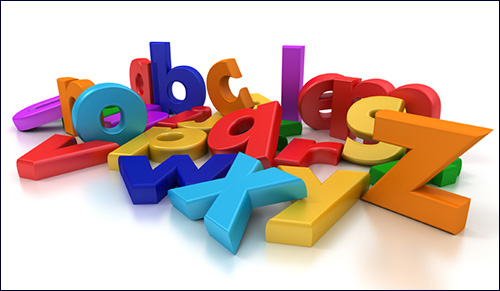 Iran’s Attack on Israel
Iran’s Attack on Israel


5 min read
When the hard truth must be told nothing says it like Yiddish.
Yiddish is so delightful, hysterical, sarcastic, moving and loud that of course people of all ethnic backgrounds have adopted some of these words because … well, how else can you say what you really mean, with just the right amount of feeling if there weren’t Yingloshen?
For example:
You hear the IRS is auditing you back to 2005 (and you forgot a few things on the form). Pick one.
Your neighbor is the type who falls over his sneakers … that are tied with Velcro.
Your cousin’s boyfriend swiped all the leftover wine at Pesach.
“Kamikaze”: Yiddish: (Chametzkazi) Exploding chametz.
Chances are, even if you grew up in North Dakota, you went with “C” on all three. After all, when the hard truth must be told nothing says it like Yiddish.
So this got me thinking. Just as English has embraced Yiddish, there must be English words that sound like they could, might, maybe fit into Yiddish too, right?
OK, no. But there’s no law against having some fun with it. Join me.
“Kamikaze”
English: A Japanese pilot who will go down with the plane.
Yiddish: (Chametzkazi) Exploding chametz.
Usage: Yes! Instead of cleaning, sweeping, wiping, shvitzing, should, God forbid, you forget the challah crumbs near the fridge, your chametzkazi will self-destruct within 60 seconds.
“Livery”
English: A place with vehicles for hire.
Yiddish: Unsightly thing(s) hanging off – or on – you.
Usage: “Darling, forgive me, but your hands are starting to get a little…livery.”
“Satchel”
English: A bag with a shoulder strap.
Yiddish: (Setchl) A bag so large it needs its own berth on the Queen Mary2.
Usage: “Don’t worry mamalas. In mine setchl, I have enough food to feed a family of eight … should terrorists attack on our way to Bermuda.”
"Far-fetched"
English: Improbable, unlikely.
Yiddish: (Fafetched) A person who complains about every tiny detail.
Usage: “Irving, who CARES if your toothbrush faces west! Oy are you fafetched!”
“Svelte”
English: A person, usually a female, who is thin and looks gorgeous in anything.
Yiddish: (Svelting) A person who’s boiling hot.
Usage: “Oy, am I svelting on this beach! Murray, run inside the condo and put on the air conditioner before I plotz!”
“Squeamish”
English: One who is easily made to feel sick, faint, or disgusted.
Yiddish: (Sqveazmish) Such a hug, especially from a zaftig person, that you’re little son Moishe is scared of being crushed.
Usage: Tante Leah, maybe a peck on the cheek is better. The pediatrician told us Moishe could be a candidate for weak shoulder bone syndrome so he advised against sqveazmishing.
“Flunk”
English: To fail as in a course in school.
Yiddish: (“Flunkeit”) He/she may be educated, brilliant, talented, but at 47, still can’t get his brother-in-law to invest in his inventions.
Usage: “You have some chutzpah calling my son a flunkeit! He already wrote to Shark Tank about his electronic match for electronic cigarettes and his personalized popsicle stand!”
“Doily”
English: An ornamental mat.
Yiddish: A Jewish potty.
Usage: “Isaac mamala, before we go to bubbe’s do you need to use the doily?”
“Far flung”
English: Extending over a great distance.
Yiddish: (Faflung) Stressed out from doing 25 different things at once.
Usage: “Oy, between the kids, the cleaning, my website store, the in-laws, and now the painters, I’m so faflung I need a week at the Fontainebleau in Miami. “
“Kindle”
English: To set on fire.
Yiddish: (“Kindleloshes”) Overcooked.
Usage: “Selma, my daughter-in-law left her brisket in the oven for 48 hours at 500 degrees because she heard it makes it tender. Let me tell you, it was kindleloshes! OY, and how could I criticize, but there are only so compliments for ‘ashes from shoe leather’?”
“Mangle”
English: To injure, spoil, or ruin something or someone.
Yiddish: Interfering with something when nobody asked for your help.
Usage: Rosalie: “Listen, it’s obvious to me you’re having some marital issues. As you know I’m an expert in human relationships, so my advice is: ‘OPEN A MOUTH! I never liked him anyway!”
Aviva: “Did I ask you to mangle?! Did my mother ask you to mangle?! Did the Sisterhood?! No one. That’s who asked you to mangle! Quit with the marriage mangling and take up something less dangerous … like sword-swallowing!”
“Lentil”
English: Dried beans.
Yiddish: A yenta in-training.
Usage: In the school yard, little Hannah is the first to tell her friend 12-year-old friend, Ariel, “Y’know … that dress is nice. But maybe for your mother. I hope you don’t mind my saying it, but you know you’re my bff.”
Ariel: And y’know, you’re nice, but you’re becoming a lentil – and someday you’ll be like your mother.”
See how perfectly our mama-loshen lends itself to both give and get back?
Should you have a stroke – of creativity of course – by all means write in your faves, or your own English words that with a twist could make it in Yiddish in the comments section below.
